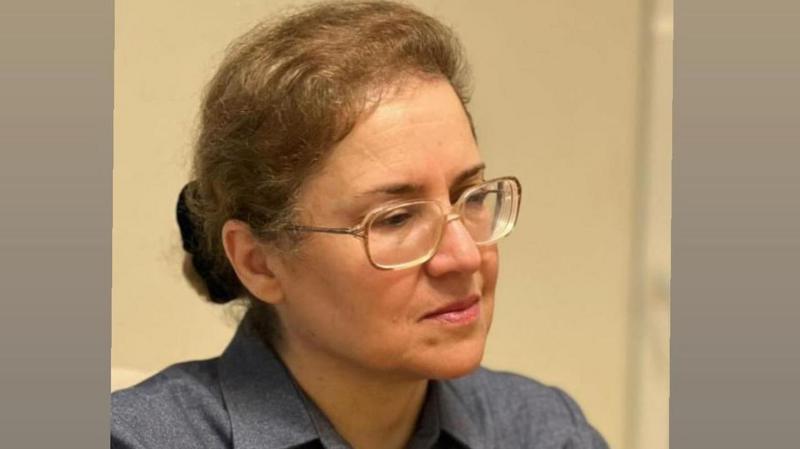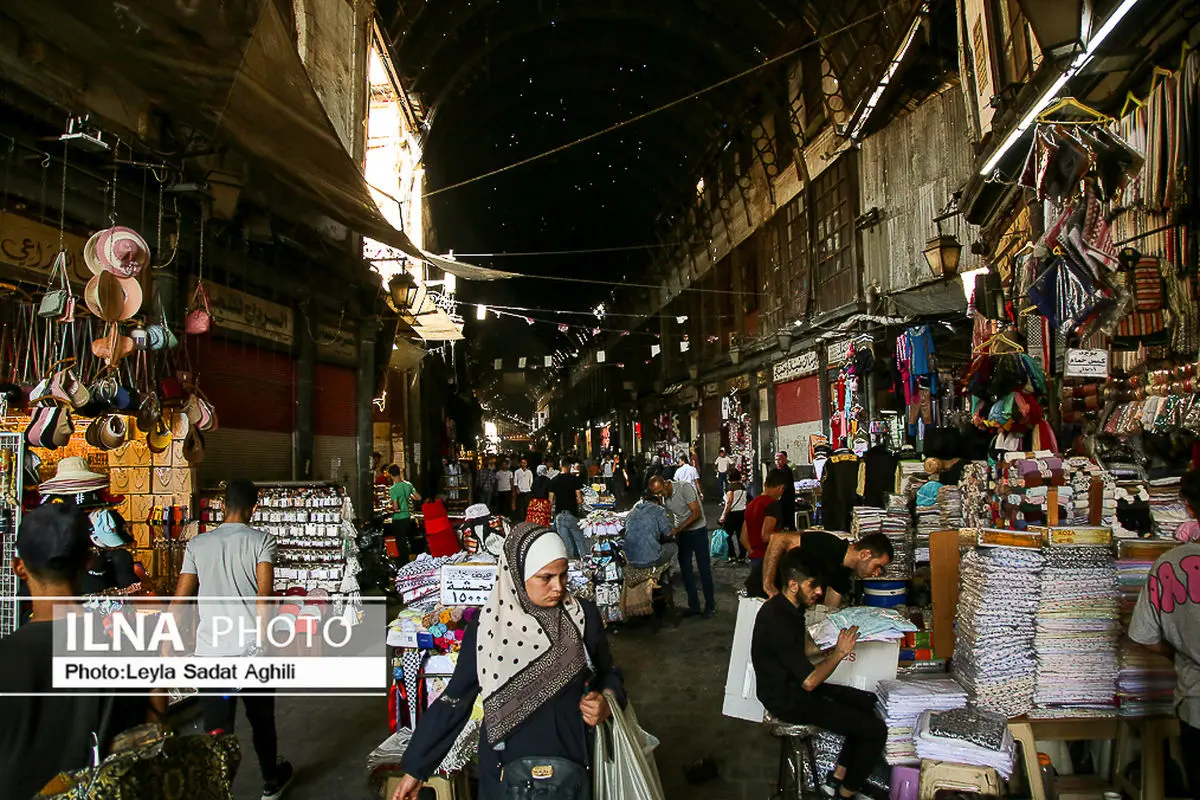
Inflation Hits Both Iran and Turkey
Mohammad Tabibian, former professor at the College of Industrial Engineering, Isfahan University of Technology, discusses in his editorial the recent developments in Turkey’s monetary policy and their potential implications. Published in the newspaper Iran Diplomacy, Tabibian highlights the decision by the Central Bank of Turkey to hike interest rates from 45% to 50% in response to soaring inflation rates, which reached 67% in February. Tabibian contrasts this move with President Recep Tayyip Erdoğan’s previous intention to abolish interest rates entirely, signaling a significant policy shift driven by economic realities.
Tabibian stresses the importance of high inflation rates as a reflection of broader economic mismanagement, cautioning against dismissing them as mere statistical fluctuations. He critiques the narrative attributing inflation to external forces, pointing to the substantial increase in consumer prices in Iran over the past year, exceeding 49.4%.
Moreover, the editorial addresses the ongoing debate regarding the calculation of inflation rates, rejecting arguments that seek to downplay its severity. He asserts that irrespective of the method used, high inflation substantially diminishes the purchasing power of ordinary citizens, rendering them economically vulnerable. Through vivid imagery, he illustrates the tangible consequences of inflation, emphasizing the erosion of individuals’ purchasing power over time.
Writer Calls on Siddiqi to Resign Following Financial Scandal
Mohammad Haydari, the editor-in-chief of Rouydad 24, addressed in his editorial the developments involving Kazem Siddiqi, the acting Imam of Tehran. Haydari’s article sheds light on Siddiqi’s alleged involvement in an illegal land transfer of 4,200 meters from the prestigious Ozgul district to himself and his sons, a revelation that has left many Iranians disheartened.
In his editorial, Haydari emphasizes that Siddiqi’s conduct not only damages the public treasury but also undermines the credibility of religion in society. However, what is even more disconcerting is Siddiqi’s response to the allegations. Rather than taking accountability for his actions, Siddiqi attempts to deflect blame by attributing the crime to another individual. His attempt to justify the incident by claiming to be a victim of forgery and manipulation is deemed absurd and disrespectful to the public’s intelligence.
Furthermore, Haydari criticizes the sluggish and opaque response of the judicial system in addressing cases of corruption, which has fueled skepticism among citizens regarding its efficacy. The failure to promptly and decisively tackle instances of corruption has eroded public trust in the government and the judiciary.
Despite facing accusations and evidence of wrongdoing, Siddiqi continues to cling to his position and influence, exacerbating the divide between the government and the people. Instead of taking responsibility and stepping down, Siddiqi persists in his role, perpetuating a culture of impunity among officials. Haydari calls for swift action, including Siddiqi’s resignation, prosecution, and the implementation of systemic reforms to combat corruption effectively. Failure to address such issues risks further alienating citizens and deepening the mistrust between the government and the governed.

Religious Scholar, Islamologist Arrested in Tehran

Sedigheh Vasmaghi, religious scholar and Islamologist, was arrested at her home by plainclothes agents in Tehran. Vasmaghi previously announced that she had been summoned to the 26th branch of Tehran’s Revolutionary Court, but the charges pressed against her, or the plaintiff of the case were not clarified; therefore, she refused to attend the court hearing, asserting that defending herself in an unjust court made no sense.
Her husband, Mohammad Ebrahimzadeh said four agents, three men and one woman, raided their apartment threatening to break the door if denied entry. He added that the agents took away his wife, her cellphone and laptop without any explanations.
Vasmaghi, civil and political activist, who was formerly a member of Tehran City Council, had published a video clip of herself without a veil on social media, pointing out that the hijab is “an instrument of oppression” and she refuses to “cooperate with oppressors” by wearing it.
Meanwhile, a number of new religious thinkers have condemned Vasmaghi’s “unlawful” arrest, expressing concerns about her eyesight problem and other health problems.
Vasmaghi has studied Islamic law, penning books such as “Rereading Sharia” and “Women, Jurisprudence, Islam.” A fierce critic of the prevailing gender inequality in Iran and an ardent advocate for women’s rights, she has repeatedly protested against obligatory hijab and the Iranian government’s confrontation with women in this regard.
Last year she questioned the hijab policies of the Iranian republic in a letter to Supreme Leader Ali Khamenei after he called women’s unveiling “a religious and political haram [taboo].”
This religious scholar asked Khamenei to explain the religious justifications for the punishments his government inflicts on women who refuse to wear the hijab. She questioned, “While in the Quran it was not stipulated that women had to cover their hair, on what definite and inviolable religious reasons has the Islamic Republic based its strict model for women’s veil?”
Warnings of Aggravation in Poverty Amid Wage Increases

Radio Farda has covered the recent development concerning a 35% increase in the minimum wage for workers, highlighting concerns raised by labor activists regarding its potential impact on inflation rates, household budgets, and the likelihood of heightened labor protests in the upcoming Iranian year, 1403.
As outlined by the Supreme Labor Council, the minimum wage for workers subject to labor laws has been raised by 35.3% compared to the previous year. Notably, this decision was endorsed solely by representatives of the government and employers, prompting strong opposition from labor representatives who abstained from signing the agreement during the Supreme Labor Council meeting.
Alireza Mirghafari, a member of the Supreme Labor Council and a prominent labor activist from Bushehr, expressed reservations about the adequacy of the negotiated percentages, emphasizing that workers continue to face economic challenges despite the purported wage increase. Mirghafari stressed that regardless of the percentage increase, workers remain economically disadvantaged, highlighting ongoing oppression.
Criticism of the approved wage hike has been widespread, with many activists and labor organizations expressing apprehension about its potential to exacerbate poverty among the working class. Nasser Chamani, a labor activist, underscored the anticipated repercussions, including the further contraction of workers’ purchasing power and heightened concerns regarding job security and occupational safety, particularly in light of rising inflation rates.
Echoing these sentiments, Daoud Kishori, a member of the executive board of the Qom Province Labor House, emphasized the real-term decline in workers’ wages, warning of an escalation in poverty if not addressed promptly and effectively.
In response to the wage adjustment, several labor organizations have indicated their intention to continue and intensify labor protests, highlighting the urgent need for comprehensive measures to address the challenges faced by the working population.
120 Iranian Protesters Lost Eyesight After Being Shot in the Eye by Security Forces

The Human Rights Center at UC Berkeley has published a report, confirming for the first time that 120 individuals who participated in Iran’s Woman, Life, Freedom protests lost their eyesight after being shot in the eye by security forces.
Most of the victims were university students or highschoolers, 30 years old or under, who were partially or completely blinded during the protests, says the report, adding that one of them was a five-year-old girl watching the protests from the balcony of her home. These protesters were mostly targeted by shotguns, paintball guns or tear gas.
The report, published on March 23, also clarifies that some protesters were shot from close range by security forces.
Alexa Koenig, faculty co-director of the Human Rights Center, noted that the data presented in this report could be used as evidence in the prosecution of Iranian leaders and their agents in international legal institutions.
Koenig presented this report to Sara Hossain, chairperson of the Independent International Fact-Finding Mission on the Islamic Republic of Iran, in a video conference.
This mission had published a report on March 8, saying the Islamic Republic of Iran committed “crimes against humanity” during its bloody crackdown on Woman, Life, Freedom protests which were triggered by the death-in-custody of 22-year-old Mahsa Amini in September 2022.
To suppress the peaceful protests, security forces used “unnecessary and disproportionate force” which led to the killing and injury of protesters, such as blinding women, men and children, affirms the UN report.
Based on this report, some of the grave human rights violations committed by the Iranian establishment consist of “arbitrary deprivation of liberty, torture, rape, enforced disappearances, and gender persecution.”
Iran Has a $250 Million Share in Syria’s $5 Billion Market

The vice president of the Iran-Syria Joint Chamber of Commerce highlighted the significant disparity between Syria’s exports and imports in 2023, shedding light on Iran’s relatively modest export figures to the country during the same period. According to Ali Asghar Mozaal, Iran’s exports to Syria notably declined in 1402, dropping from an average of $250 million to $280 million annually to $120 million over the course of 10 months.
Mozaal attributed this decline to several factors, including unfulfilled agreements between Iran and Syrian authorities aimed at bolstering bilateral trade. Despite pledges to expand Iran’s exports to Syria during the president’s visit to the country, Mozaal lamented the lack of progress in implementing these commitments, particularly the establishment of Iranian bank branches in Syria, which is crucial for facilitating financial transactions between the two nations.
Moreover, recent tensions between Israel and Syria have dampened Syria’s willingness to import goods from Iran, further complicating the trade relationship. Mozaal also highlighted logistical challenges, such as the closure of Iraq’s land border with Syria, making it difficult to transport Iranian goods to Syria. Additionally, the absence of insurance coverage for Iranian vehicles in Iraq and Syria has deterred exporters from sending goods to Syria.
Mozaal emphasized the limited range of goods exchanged between Iran and Syria, with olives being the primary Syrian export to Iran, albeit in small quantities. Despite Syria’s interest in exporting textiles and leather to Iran, such imports are prohibited, leading to dissatisfaction on the Syrian side. Mozaal underscored Syria’s potential as a lucrative market for Iranian goods, given its weak domestic production and demand for various imported products.
The Emigration of Nurses Is Not a Good Thing

Reza Arianpour, the second secretary of the health and treatment committee of the Islamic Consultative Assembly, addressed the concerning trend of nurses leaving the country in an interview with the Young Journalists Club. He highlighted the universality of the issue, noting that while in the past, few medical students considered emigration, the trend has become more prevalent, with students contemplating leaving the country even before completing their studies.
Arianpour emphasized the significance of retaining skilled healthcare professionals who have benefited from years of education and training, particularly considering the current shortage of nurses and doctors in the country’s hospitals. Despite the demand for healthcare workers, he lamented that their salaries do not reflect the difficulty of their work or living conditions, often leading to delayed payments and dissatisfaction among nurses.
He pointed out that Arab and European countries actively seek Iranian nurses, offering higher salaries and better working conditions. This disparity in compensation prompts many nurses to seek opportunities abroad, even if it means working in unrelated fields such as internet taxis to earn a higher income.
Arianpour stressed the importance of increasing nurses’ salaries to deter migration, highlighting the discrepancy between the earning potential within and outside the country. He noted that while increasing the workforce of nurses is essential, it does not guarantee their retention, as those with the means to emigrate often choose to do so despite completing their education and training.
Despite efforts to address the issue in parliamentary discussions and health committee meetings, Arianpour expressed frustration at the lack of progress in improving the situation for healthcare personnel. He emphasized the need for concerted efforts from the government and relevant organizations to address the challenges faced by nurses and healthcare workers, particularly in terms of compensation and working conditions.
Young Doctor Commits Suicide in Iran, Raising Concerns About Staffers’ Mental Health

The tragic suicide of a young doctor has once again highlighted the challenging working conditions and the lack of mental health support among medical professionals in Iran. Dr. Prasto Bakhshi, a cardiologist at Ibn Sina Delfan Hospital in Lorestan Province, tragically ended her life.
Yousuf Reza Jahani, the director of Delfan Health and Treatment Network, announced the untimely death of the doctor, stating that the cause remains unknown. After unanswered calls to Bakhshi on the night of April 4, 2020, her colleagues found her lifeless body on the balcony of her residence within the hospital premises. Bakhshi had recently joined Ibn Sina Delfan Hospital, having been transferred from Rahimi Hospital in Khorramabad.
Despite official statements indicating uncertainty regarding the cause of death, members of the medical community on virtual platforms have pointed to Bakhshi’s suicide, attributing it to various reasons. Ali Selahshor, head of the General Department of Public Relations and International Affairs of the Iranian Medical System Organization, highlighted the prevalence of depression among young doctors. He mentioned significant challenges faced by Bakhshi, including personal tragedies and professional setbacks, such as difficulties with her residency program and mistreatment by a senior colleague.
Mohammad Reza Esadi, a member of the Board of Directors of Greater Tehran Medical System, condemned the growing trend of suicides among doctors and medical assistants, attributing it to negligence or mismanagement by authorities. He urged for accountability and corrective measures to address the underlying issues contributing to the distress of medical professionals.
In response to Bakhshi’s tragic death, Aladdin Sheikhi, the head of Khorramabad Medical System Board, called for urgent action, including a meeting involving government officials, the Parliament and the Ministry of Health to investigate the incident. He stressed the importance of utilizing the expertise of psychiatric specialists to address the rising challenge of suicides among medical staff.
The Scientific Association of Psychiatrists of Iran has also called for action, urging the formation of a committee to investigate suicides among doctors and residents and implement preventive measures. Vahid Shariat, the head of the association, highlighted the lack of transparency regarding the exact statistics of residents’ suicides, as the Ministry of Health considers this information confidential.
The tragic death of Dr. Bakhshi serves as a poignant reminder of the pressing need to address the mental health and well-being of medical professionals in Iran and to implement supportive measures to prevent further loss of life within the medical community.
Yet Ali Selahshor, head of the General Department of Public Relations and International Affairs of the Iranian Medical Organization, addressed the concerning issue of depression among young doctors. In an article titled “This Amount of Depression Among Young Doctors Is Unprecedented!” posted on her personal Instagram page, Selahshor shed light on Dr. Bakhshi’s personal struggles. He mentioned that Dr. Bakhshi commenced her residency program after enduring two significant traumas, the loss of both her parents, and faced delays in her career progression. Selahshor highlighted the Ministry of Health’s failure to assist Dr. Bakhshi in relocating her residency program despite her being on the ministry’s blacklist. This revelation underscores the challenges faced by young doctors in Iran and the urgent need for systemic support and reforms within the medical system.
